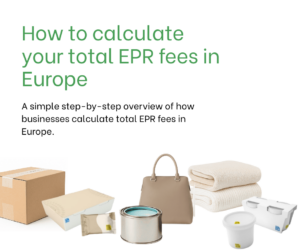Deemed supply invoices
Deemed supply invoices
When online marketplaces act as deemed suppliers of goods a situation arises when it is necessary to issue invoices from a merchant to a marketplace. Let’s examine the invoicing rules for deemed supply in the EU and the UK.
Deemed supply meaning is described as a sale where tax responsibilities are transferred to a facilitator such as a marketplace or payment provider. In terms of quality, delivery, or other question it is a seller or owner of goods who is in charge of the sale. But for VAT collection and remittance purposes, an obligation is transferred to a facilitator of sales.
1. Intra-EU deemed supply
When non-EU businesses sell via the marketplace and goods are shipped within the EU, Marketplace is a deemed supplier. That means, that a Seller needs to issue an invoice to a marketplace. According to EU rules, it is an exempted supply, so it needs to be mentioned in the invoice as “exempted” or “exempted deemed supplier provision”.
A Seller may issue a consolidated invoice for monthly sales dated the last day of the month or multiple invoices for each sale.
We suggest issuing invoices for each country of destination of the goods. Use either a VAT number of an online marketplace in a Member state of identification when you don’t use a marketplace fulfillment center or use a VAT number of a Marketplace where its fulfillment center is situated.
What VAT number to use?
A Seller must use a VAT number of the country from where they dispatch goods, if goods are dispatched from a marketplace warehouse use the corresponding country VAT number. In case a marketplace doesn’t have a VAT number in the dispatch country use their main EU VAT number.
In case when parties decided to use the self-billing option, a marketplace should follow the same rules.
Note: If you agree with a Marketplace to use a self-billing scheme – you don’t have a right to issue an invoice for the same supply, you must use an invoice issued by Marketplace.
Such invoice must be shown in a VAT return of the country where this supply occurs in spite of this supply being exempt.
2. Import of Low-value goods to the EU deemed supply
For B2B sales of goods, the place of supply is where the shipment starts. In a situation when shipment starts outside of the EU such supply is seen as out of the scope of EU VAT. That means that there is no need to issue a VAT invoice between the Seller and Marketplace for the import of low-value goods. As a Seller, you need to attach a commercial invoice to the parcel but it is not a VAT invoice.
3. Intra- the UK deemed supply
When a non-UK business uses Marketplace to sell goods to private individuals, such supply is split into two transactions: first B2B between Seller and Marketplace and second B2C between a marketplace and a final customer. How to document the first transaction?
There is no obligation for a Seller to issue an invoice for B2B deemed supply. But if a seller chooses to issue an invoice there are several requirements:
- Note that deemed supply in the UK is zero-rated in contrast to the EU (exempt). That means that you must state the VAT rate of 0% in your invoice. You may issue a consolidated invoice for a month. Because a VAT invoice needs to be issued within 30 days of the sale.
4. Import into Great Britain under £135 + 20% VAT (deemed supply)
Note that other rules may apply when you import to Northern Ireland.
Import via Marketplace goods under £135, such sale is an LVG deemed provision. Such sales are seen as deemed for the UK registered sellers and non-UK sellers.
Seller reports such sales in the departure country VAT return as a 0% VAT (export) supply. A Seller has no obligation to issue a UK VAT invoice between Seller and Marketplace.
A seller needs to issue a commercial invoice with an intrinsic value of the goods and attach this invoice to a parcel for customs purposes with a note “VAT collected under Marketplace scheme”.
What is deemed supply in VAT?
Deemed supplies provisions are a sale that is split into two sales: the first one is between a seller and a facilitator without VAT or with 0 VAT and the second is between a facilitator and customer. Even when the Seller transfer VAT obligations to a marketplace he may need to declare such sales in a VAT or a sales tax return. For example, a US seller sells medical devices to French customers via a French marketplace. The seller stores goods in a French warehouse. Such supplies fall under the definition of deemed supply. That means that for VAT purposes the Marketplace will be a seller to a final customer and remit VAT.



